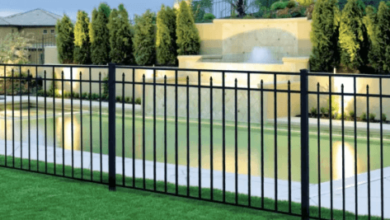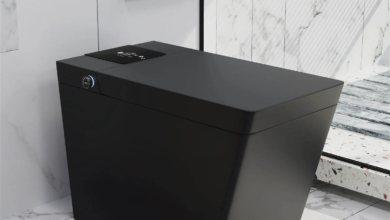How Epoxy Driveway Coatings Perform in Outdoor Conditions

Epoxy driveway coatings are popular today for their sturdiness and look. However, homeowners and those who manage commercial property also need to consider if they perform in the tough and unpredictable exterior environment. Unlike indoors, driveways face a variety of environmental contaminants: vehicle traffic, dramatic temperature changes, and UV exposure on a regular basis. The performance attributes of epoxy driveway coatings outdoors are discussed here, as well as their benefits and the factors that determine their longevity and visual appeal.
Resistance to Vehicle Traffic and Abrasion
Epoxy coatings have great strength and are resistant to damage from large loads, making them well-suited to controlling vehicular traffic. An epoxy for driveway when applied properly creates a tough, nonporous surface that can withstand chipping from stones or rocks, marks, scuffs, tire marks, and stains.
It looks great and lasts even when traveled day in and day out by cars, trucks, and other vehicles because the coating is so strong and resilient. The majority of its longevity in high-traffic areas is due to its ability to withstand constant pressure and friction.
See also: How Exterminators Can Help You Take the Wheel Back
Color Retention and UV Stability
Ultraviolet (UV) rays from the sun are one of the most significant challenges for any outdoor enclosure. In general circulation, sunshine, and normal epoxy resins will fade, chalk, and yellow, which may result in an ugly surface.
Epoxy technology however is constantly evolving, with newer UV stable epoxies now available in the market, most with urethane or aliphatic poly aspartic topcoats. The driveway’s appearance is also maintained with top coatings as they provide essential UV protection to sustain original color and luster.
Adaptability to Weathering and Extreme Temperatures
Extremes in weather, from high heat in the summer to freezing temperatures in winter, are artificial driveways’ sworn enemies. A high-quality epoxy floor coating is intended to withstand these tough conditions without lifting, tearing, or cracking.
The flexible, adhesive properties of today’s epoxy formulations allow them to move with the concrete beneath so as to counteract the stress of temperature. The non-porous surface resists moisture and doesn’t promote freeze-thaw damage in colder regions, meaning these blocks will always stand true and you’ll have more money in your pocket.
Resistance to Chemicals and Stains
Driveways can be exposed to various chemicals and potential staining agents from oil drips, gas spills, de-icing salts, and car fluids. Epoxy coatings offer great resistance to these kinds of contaminates, preventing absorption and staining of the concrete.
Cleanup is substantially easier due to their smooth non-porous surface that usually requires nothing more than a quick wipe. This resistance to chemicals further extends the useful life of the driveway and minimizes the owner’s maintenance responsibility by preventing the underlying concrete from being eroded by harmful elements and causing unwanted discoloration.
Appropriate Surface Preparation and Use Are Essential
Long-lasting, and durable outdoor epoxy asphalt driveway thorough surface preparation and professional application are essential to a successful installation. The concrete substrate must be thoroughly cleaned, repaired, and roughened to ensure the best adhesion is achieved.
If you have poor preparation, you may notice the vinyl peeling or bubbling up. Investing in expert installation is sometimes the most important strategy to extend the life and advantages of an epoxy driveway.
Contemporary epoxy for driveway coatings, especially those with UV-stable topcoats and skilled installation, are well-equipped to operate remarkably well, even if outside environments pose special obstacles.





